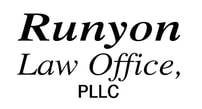Probate Avoidance Revisited
How, you ask? First, make a list of all your stuff: real estate, bank accounts, investments, retirement accounts, life insurance, vehicles, fridge magnets. Then, check to see how everything's currently owned or payable upon your eventual departure. If it's jointly-owned, say, with your spouse or a child, it's going to pass, without probate, to that co-owner as long as they last longer than you do. Same, too, if it's got a named beneficiary. And finally, if it's either payable to or titled in the name of a revocable trust, it will be skirting probate, and your family will be eternally grateful.
I'm going to assume you already know most of this. The problem is that you actually need to do the follow through. I can't tell you how often someone we've reminded about this subject over and over again still hasn't finished the project until after it's too late. That is, there's just a little checking account used to buy groceries or pay the light bills that's still in one lone name, or the life insurance is still payable to a spouse who's already passed on, or the house was jointly-owned with that spouse and now it's just in the survivor's name. Probate, probate, and more probate is all I can say.
Most planners these days recommend revocable trusts to their clients as the best anti-probate alternative, I've given that lecture myself before, so I won't repeat myself. What I will do, though, is make available my how-to memo about getting it all done. If you'd like a copy, please contact us for one free of charge.
Posted 09/17/2013
